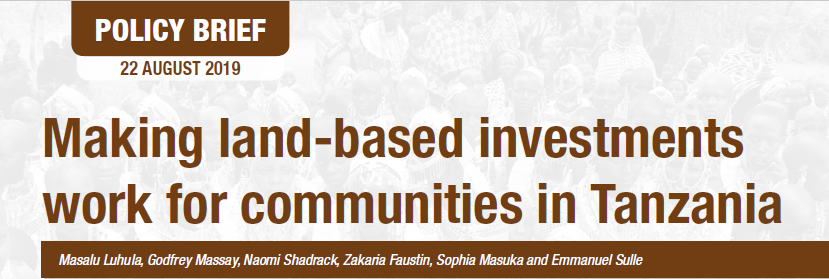CSO’s Urge Tanzanian Delegation to Support REDD positions in Cancun
IN an effort to advocate for an equitable, scientifically sound and environmental international REDD (reducing emissions from deforestation and forest degradation) agreement, a group of civil society organizations developed a position for the REDD negotiations at COP 16. The position is being released just days before the United Nations Framework Convention on Climate Change’s sixteenth Conference of the Parties is set to begin in Cancun, Mexico.
Eight CSO’s have signed onto the position, including all the REDD pilot projects that are currently implementing REDD in Tanzania.
“CSO's, and in particular those who are already working on the ground to implement REDD, recognize that there is potentially a lot at stake in Cancun in regards to REDD. Therefore, I am very happy that we have joined together to develop a position on REDD for Cancun, which we hope the meeting will consider and support,” says PancrasNgalason, Executive Director of the Jane Goodall Institute Tanzania.
Tanzanian delegates will take part in the negotiating process in Cancun, where REDD is expected to be a hot topic. The CSO’s, frustrated by the lack of communication with the Tanzanian Government, the National REDD Task Force and the Tanzanian delegation, are urging the Government of Tanzania to consider and hopefully adopt their negotiating positions. Specifically, they urge the government of Tanzania to push for an environmental, human rights and scientifically sound agenda.
“It is so important that civil society be heard in this process, and I hope that our Tanzanian delegates will take notice of our position as we are offering advice based on learned experience," says Dr. Steven Kiruswa, Maasai Steppe Heartland Director for the African Wildlife Foundation.
The CSO’s position is calling for the prioritization of the protection of natural forests over plantations, global targets for the reduction of deforestation and a commitment to develop guidelines for measuring, reporting and verifying environmental and social safeguards along with measuring carbon reductions.
It calls for the protection of human rights by claiming that any agreement must require full and effective involvement of all stake/rights holders in national REDD strategy development, as well as to guarantee the rights of local communities, as forest policies will have significant impacts on forest dependent people. The position also states that national and regional-level monitoring of deforestation must be allowed, as this will help decentralize REDD while assuring sound reporting and verification systems are in place.

